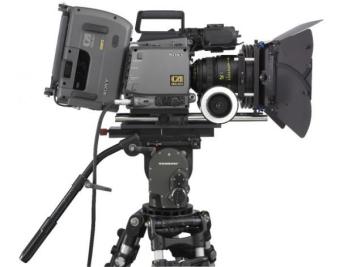Wednesday
Feb162011
Swept Up In Sweeps
 Sweeps is a four week period that occurs four times a year to closely track ratings, in general and among certain demographic groups, for the purpose of setting advertising rates.
Sweeps is a four week period that occurs four times a year to closely track ratings, in general and among certain demographic groups, for the purpose of setting advertising rates.
So, how do health and medical stories get picked for sweeps?
Let's look at a few examples.
- Previous proven performance. Just in the first two weeks of February (a sweeps month), I've had only one planned report. It was about an at-home obstructive sleep apnea screening device. I was appointed this assignment because pieces about sleep apnea tend to get good ratings in this market.
- Apparently allergies, particularly pollen allergies, also test well in this market. As a variation on a theme, I was gievn a piece on food allergies, too.
- Sheer numbers. Another piece worth mentioning was about the higher risk of stroke and heart attack associated with diet soft drinks. This came from a study being presented at the American Stroke Association meeting. Of note, this broke on the same day as the study from JAMA about leaving lymph nodes intact for women with early stage breast cancer. Because more people drink diet soda than have breast cancer, the former topic wins.
- Some challenges arose. Because the data was not yet published, not all of the figures I was interested in were available to me -- absolute risk, for instance, as well as the risk for the group that only drank regular soda. Also, all of the stroke neurologists in my city were at the conference. I ended up interviewing an internist who specializes in diet, nutrition, and weight loss for his perspective. Because of the preliminary nature of the data and the study design that cannot prove cause and effect, I simply stated the attention-grabbing finding, tried not to vilify diet soda, and made it a point to say the information was being presented at a meeting.
- The buzz. It's unfortunate a reporter had what appears to be a transient ischemic attack during a live shot at the Grammys, and some say it's unfortunate this unintentionally public medical event became news. But if you looked at social media sites, or dropped by the water cooler, it was topic of much discussion. I did not disagree with my bosses on this one -- this was newsworthy. As a retired neurologist, I saw it as a valuable teachable moment: a TIA is a medical emergency. I also included a short differential diagnosis in my report, something many of my colleagues did not do in their reporting, so as not to definitely declare this was indeed a TIA.
These aren't the only factors, of course, and we can look at some others the next time sweeps comes around. But it gives you some idea of how news organizations think, and how you and your patients get their local TV news.
 Email This Article |
Email This Article |  Feb 16, 7:00 PM
Feb 16, 7:00 PM 





Reader Comments (3)
@Dr. Simbra,
I'd very much like to hear your views on how a physician can get, and then benefit from press coverage. I've been somewhat successful in my local area but I'd like to hear your thoughts on interviewing, pitching, etc.
Some tips on sweeps:
1. Make sure there is a local hook , describing the experiences or reactions of people who live in the viewing area.
2. Hire a PR person to place your story
3. Be careful what you ask for. You will not have control of the final product.
4. Production companies might approach you about being an "expert or thought leader" and then expect you to pay for part of the production that will air on cable or Internet networks. Define the expectations up front
5. Creating a high quality videa takes time , practice and commitment. Don't expect to block out a half hour in your day to do an interview and then see something on the Thursday night news.
6. Understand what time and day your feature will be aired.
7. Create a way to track the results.
My number one piece of advice: BE AVAILABLE! We reporters work on such a tight deadline, we often go with whoever says yes to an interview first. This means squeezing an interview in between patients (it will only take five minutes, really), being at a convenient location (i.e. at the main hospital, not one county away in your satellite office), and easy to contact. It's a good idea to make yourself known to your hospital's marketing department. Reporters often call there first to see who might be around for a quick comment. Keep an ear out for the medical buzz of the day. If it's related to your specialty in any way, but prepared to get called on...or even better, preemptively call the marketing department to let them know you are willing to speak.
I would also agree with all the points Arlen made.
If you want a repeat visit, make a good impression on the reporter by speaking simply, showing emotion, and anticipating the crew's needs (close parking; a large, visually interesting space; promptness).
Stayed tuned for interviewing tips. It will be the subject of a future contribution to FreelanceMD.